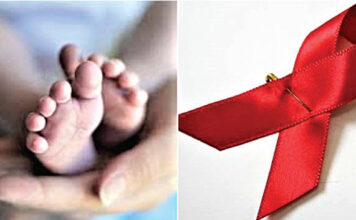On the occasion of Children’s Day in Nigeria, Dr. Temitope Ilori, the Director General of the National Agency for the Control of AIDS, highlighted the urgent need to prevent the transmission of HIV from mothers to their children.
He emphasized that with the current technological advancements and innovations, it is unacceptable for any child to be born with HIV, and we must work towards ensuring that no newborn starts life with this disease.
In an official statement released on Monday by Toyin Aderibigbe, the Head of Public Relations and Protocol at the agency, in honor of the 2024 Children’s Day, the significance of this day was highlighted as a poignant reminder of the precious nature of children and the profound responsibility the nation must uphold in guaranteeing their health, joy, and overall well-being.
Aderibigbe emphasized the critical importance of tackling a pressing health concern that affects the most vulnerable members of society – the transmission of HIV from mothers to their newborns.
Ilori stated, “On this special day, we reaffirm our commitment to the goal that no child should be born with HIV.
“As we honour our children today, we must also commit to protecting them from preventable diseases, including HIV. No child should begin life with the burden of HIV when it is within our power to prevent it. By strengthening Prevention of Mother-to-Child Transmission services, we can ensure that every child has the opportunity to grow up healthy and strong.”
The Director General of NACA recognized that Nigeria has achieved substantial success in decreasing the incidence of mother-to-child HIV transmission, but emphasized that further efforts are required to completely eliminate the issue.
She reaffirmed the agency’s commitment to guaranteeing that all pregnant women with HIV receive comprehensive care and treatment, thereby preventing transmission to their children and ensuring a HIV-free generation.
“Our goal is clear: to eliminate mother-to-child transmission of HIV in Nigeria. This requires the collective effort of government agencies, healthcare providers, civil society organisations, and communities.
“By providing antiretroviral therapy to pregnant women living with HIV, promoting safe delivery practices, and supporting appropriate breastfeeding methods, we can protect our children from HIV,” Ilori highlighted.
